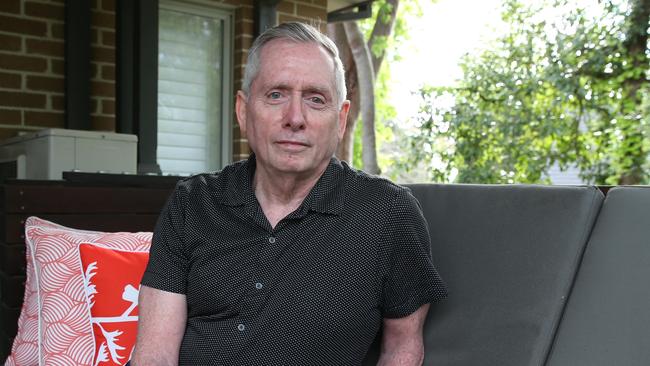Heart attack survivors find new treatment for recurrence risk
Second heart attacks and strokes are one of the biggest threats to patients of cardiovascular disease, with a new medication quoted to reduce risk by 25 per cent.

Mike Lynch was only 12 when his mother died of cardiovascular disease, in the years following he would find out himself and both his siblings were condemned to battle the same condition through their lifetimes.
“My mother was a normal sort of person, except she had these funny looking lumps behind her ankles, which turned out to be lipids,” the Sydneysider said. “Such was the extent of her hypercholesterolaemia, and I knew nothing really, until the day my father came home and said, ‘She’s not coming home from hospital. Do you want to go and visit her one last time?’”
Mr Lynch, 70, has seen the progression of treatment for the condition through his lifetime, at stages swearing off medical care entirely due to the burden of side effects from medications.
Through this history, the risk of a second heart attack or stroke for sufferers has remained acute. But Australians will, for the first time, have affordable access to a cardiovascular drug that mitigates this risk, following the listing of Vazkepa on the Pharmaceutical Benefits Scheme.
Mr Lynch, a former TV and copyright executive, said the medication would spare thousands of sufferers from the harsh treatments he had endured, and alleviate some of the fear of major cardiac events.
“I bailed out from medical science for about a decade, I just did nothing. (Because) through my 20s and 30s, no real options from science came to market,” he said.
“I developed those lumps that my mother had, I started to develop them behind my elbows and they’re about the size of a cherry tomato. Then the fat started developing in my Achilles tendons, and it grew to about triple the thickness of a normal person.
“But even two weeks before I had a quadruple bypass, I didn’t know I was sick. Most people don’t know until the heart attack comes or some other event happens.”
Where statins and aspirin, the most commonly prescribed cardiovascular medications, target cholesterol, Vazkepa targets triglycerides. Triglycerides, a form of fat that forms in the bloodstream, have previously been impossible to target for those hoping to lower the risk of recurrent strokes and heart attacks. Vazkepa acts similarly to fish oil, breaking up fats in the body, but is able to single out triglycerides.

Cardiologist Stephen Nicholls said while other medications can break down triglycerides, Vazkepa is the only one found to reduce inflammation and reduce stroke and heart attack risk in the process.
“It’s not necessarily about the triglyceride lowering, it’s actually about trying to get the right therapy into a patient with high triglycerides,” he said. “This lowers the amount of inflammation in the plaques in the walls of the blood vessels, and that’s really critical, because a plaque that’s really inflamed is more likely to cause a heart attack.”
1.2 million Australians face cardiovascular disease, and a third of those will suffer a second heart attack or stroke within seven years of their first.
Heart Foundation chief medical adviser Gary Jennings hoped clearer medical results from Vazkepa prescriptions would allow patients to be more involved in their own care.
Vazkepa is a product of the pharmaceutical company CSL Seqirus. It was first approved for use in Australia in March 2024.
“Vazkepa is a life changing drug and now we’re making it cheaper for more Australians,” federal Health Minister Mark Butler said. “Without this listing Australians would have to pay around $1800 per year.”





To join the conversation, please log in. Don't have an account? Register
Join the conversation, you are commenting as Logout